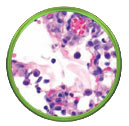 | 1918 Flu - Nov. 2006
A virus that killed up to 50 million people is brought back to life to decipher its deadliness. | |
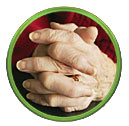 | Aging - Jan. 2007
Will research into "longevity genes" help us live longer and healthier lives? | |
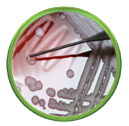 | Anthrax Investigation - June 2009
The new science of microbial forensics reveals the source of the anthrax used in the deadly attacks of 2001. | |
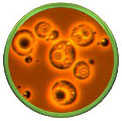 | Artificial Life - Oct. 2005
Are scientists on the verge of making living things from little more than dust? | |
 | Autism Genes - July 2009
Researchers have begun to zero in on genes that might be responsible for autism. | |
 | Bird Brains - July 2008
Clues to the origins of human language are turning up in the brains of birds. | |
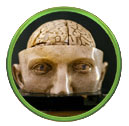 | Brain Trauma - July 2008
Even so-called "mild" head injuries turn out to be anything but. | |
 | Epigenetics - July 2007
Our lifestyles and environment can change the way our genes are expressed, leading even identical twins to become distinct as they age. | |
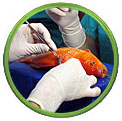 | Fish Surgery - Oct. 2005
Veterinary medicine has caught up with Americans' love for their number one choice of pet: the fish. | |
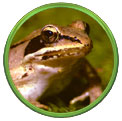 | Frozen Frogs - Apr. 2005
The common wood frog freezes solid every winter and then, come spring, defrosts and mates. | |
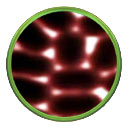 | Killer Microbe - July 2008
A relatively benign bug becomes a highly lethal pathogen, known to U.S. soldiers as Iraqibacter. | |
 | Lab Meat? - Jan. 2006
Scientists can grow edible meat in culture from a few animal cells. Bon appétit? | |
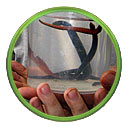 | Leeches - July 2008
A century after falling out of favor among doctors, medicinal leeches are back in hospitals, sucking away on patients' wounds. | |
 | Marathon Mouse - July 2009
With an "exercise pill," researchers turn couch-potato rodents into champion runners. | |
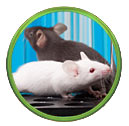 | Of Mice and Memory - June 2008
Mice placed in enriched environments can recover lost memories, giving hope to those who study Alzheimer's. | |
 | Mirror Neurons - Jan. 2005
A recently discovered system in the brain may help explain why we humans can get so worked up watching other people. | |
 | Obesity - Oct. 2006
Examine the biology behind the compulsion to eat. | |
 | Pandemic Flu - Jan. 2006
Will the virus that causes bird flu develop the ability to move from person to person? | |
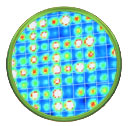 | Personal DNA Testing - July 2008
Genetic testing to assess risk factors for a handful of serious illnesses is now commercially available. But is it a good idea? | |
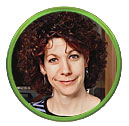 | Profile: Bonnie Bassler - Jan. 2007
Her insight into how bacteria "talk" has launched a revolution in biological and medical research. | |
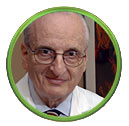 | Profile: Judah Folkman - July 2008
Once scorned for his ideas about how cancer grows, the late Judah Folkman is now hailed as a visionary. | |
 | Profile: Tyler Curiel - Jan. 2006
In the midst of Hurricane Katrina a cancer researcher risks everything to save a medical treasure. | |
 | Profile: Naomi Halas - Apr. 2005
Naomi Halas is a pioneering nanotechnologist bent on seeing practical applications for her work—and soon. | |
 | Profile: Erich Jarvis - Oct. 2005
The work of neuroscientist Erich Jarvis demonstrates the power of open-mindedness in the lab. | |
 | Profile: Alfredo Quiñones-Hinojosa - July 2008
He jumped the fence from Mexico to work as a farmhand and ended up a leading brain surgeon. | |
 | Profile: Pardis Sabeti - July 2008
By night she's a rocker. By day, she's a Harvard geneticist tracking the evolution of the human genome. | |
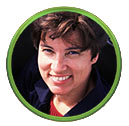 | Profile: Edith Widder - July 2008
Meet a marine biologist and explorer who has engineered new ways to spy on deep-sea creatures. | |
 | RNAi - July 2005
A wayward petunia leads to the discovery of modest little molecules with enormous medical promise. | |
 | The Science of Picky Eaters - July 2009
Don't like broccoli? Your DNA may explain why. | |
 | Sleep - July 2007
Why do we need sleep? Part of the answer may be to strengthen memories. | |
 | Stem Cells - Apr. 2005
What are they, and how do we find a balance between hope for cures and respect for life? | |
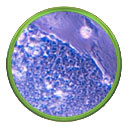 | Stem Cells Breakthrough - July 2008
Three separate teams overcome a biomedical hurdle—creating stem cells without the use of human embryos. | |
 | Stem Cells Update - Jan. 2006
A new technique for creating stem cells may ease ethical concerns. | |

































